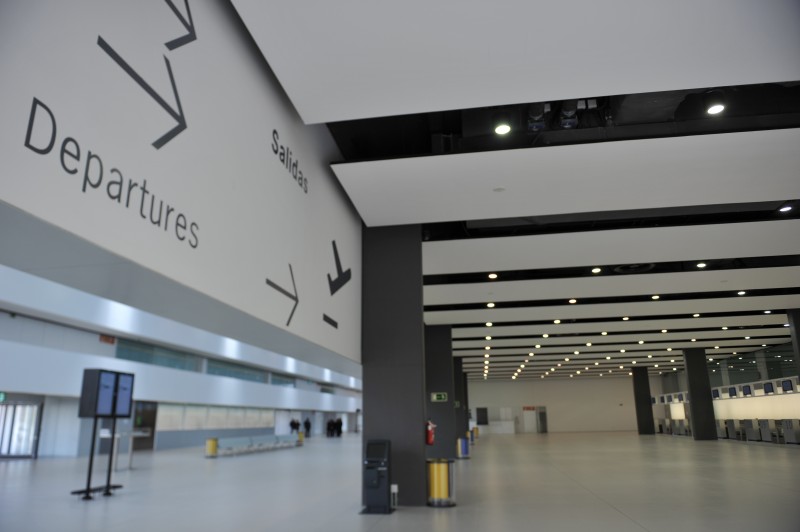Date Published: 25/02/2021
ARCHIVED - Corvera airport made a 45-million-euro loss for management company Aena in 2020
ARCHIVED ARTICLE 
Aena reported a 50 per cent drop in turnover on Wednesday and Corvera is one of the airports worst affected by the pandemic
The extent to which the air travel sector in Spain has been hit by the restrictions on movement during the coronavirus pandemic has been underlined this week by the release of the 2020 results of airport management company Aena, reporting a loss of 126.8 million euros after making a net profit of 1,442 million euros the year before.
In overall terms the company lost half of its turnover last year, and unfortunately, the Region of Murcia International Airport in Corvera is one of those which most graphically illustrate the scale of the disaster for Aena as a whole. Dependent to a very high degree in normal circumstances on flights to and from the UK, this winter Corvera has become a “ghost airport”, with the number of passengers passing through the terminal during January averaging just 53 per day.
Even factoring in the two months prior to the pandemic at the start of 2020 and the resumption of flight schedules during the summer, the restrictions placed on travel by the British government contributed to passenger numbers at Corvera in the whole of last year falling to only 217,000, or a little under 20 per cent of the total reached in 2019.
In these circumstances it is inevitable that running the airport ceases to be a profitable business, and an article published in regional newspaper La Opinión states that Corvera cost Aena 45.3 million euros last year. The loss was mitigated to a certain extent by a 2.6-million-euro subsidy from the regional government of Murcia in December to compensate for the forced closure of establishments within the airport while at the same time the national government obliged Aena to keep it open.
So serious is the situation, though, that the Murcia airport contract is one of the two Aena assets specifically identified as having deteriorated in value during 2020 as a result of Covid-19, the other being the airport group of north-western Brazil.
Apart from Aena, of course, numerous other businesses at the airport are in desperate situations as a result of the pandemic and its consequences, including the shops, bars and restaurants which normally depend entirely on passengers for their business. For this reason Aena is currently preparing a cost-cutting plan, aware that the situation throughout Europe eliminates any possibility of a full and immediate recovery, re-negotiating rental and vending machine contracts and other ancillary services.
The level of rent being paid by businesses at the airports run by Aena is an especially contentious issue: a discount of 50 per cent has been proposed by the company but tenants insist that they need more in order to justify maintaining their presence in terminal buildings, and inevitably this will be the case to an even greater degree at Corvera, where traffic fell by 97 percent in January.
The cancellation of several flights scheduled by Ryanair recently has un-nerved local residents, concerned that unless the situation improves, they could be forced to always use Alicante as there are so few flights scheduled into the airport at the moment; this was exacerbated this week when passengers booked on easyJet flights from Bristol to Corvera took to social media to express their frustration that flights booked for April on this service have also been cancelled.






























